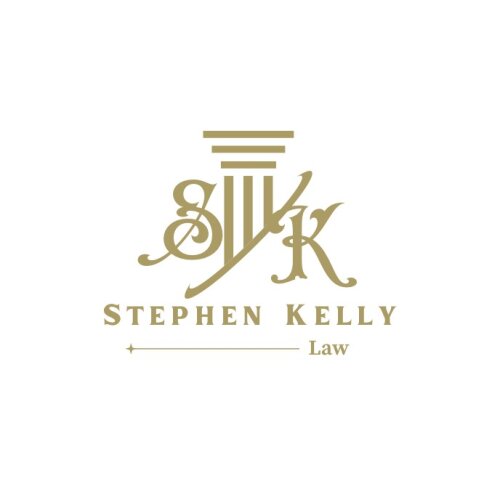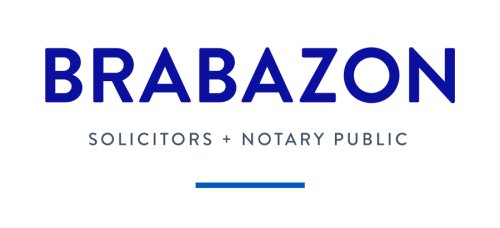Best Housing, Construction & Development Lawyers in Ireland
Share your needs with us, get contacted by law firms.
Free. Takes 2 min.
Free Guide to Hiring a Real Estate Lawyer
Or refine your search by selecting a city:
List of the best lawyers in Ireland
About Housing, Construction & Development Law in Ireland
Housing, Construction, and Development Law in Ireland encompasses a wide range of regulations and statutes that govern the planning, building, and utilization of property. This legal field addresses issues related to land use, residential development, commercial construction, zoning laws, environmental regulations, and property rights. The sector is crucial due to its direct impact on societal infrastructure and individual housing needs. It aims to ensure safe, sustainable, and efficient development while balancing economic growth with environmental and community considerations.
Why You May Need a Lawyer
Individuals or businesses may require legal assistance in Housing, Construction, and Development for several reasons:
- Planning Permission: Guidance is often needed to navigate the process of obtaining or contesting planning permissions.
- Property Disputes: Conflicts over land ownership, boundaries, or development rights frequently necessitate legal intervention.
- Contract Negotiations: Construction projects often involve complex contracts, where legal expertise is essential for drafting, negotiating, and enforcing agreements.
- Compliance Issues: Ensuring compliance with building regulations, safety standards, and environmental laws can require legal expertise.
- Insurance and Liability: Construction and development carry risks, and legal advice is crucial in managing liability and insurance claims.
- Tenancy and Leasing: Lawyers can help with issues related to leases, tenant rights, and eviction processes.
Local Laws Overview
Key aspects of local housing, construction, and development laws in Ireland include:
- Planning and Development Acts: These acts govern the framework for planning permission and set out the requirements for different types of developments.
- Building Regulations: Establish minimum standards for construction and design to ensure safety, accessibility, and energy efficiency.
- Residential Tenancies Acts: Outline the rights and duties of landlords and tenants, providing protections for tenants while ensuring property owners can manage their properties effectively.
- Landlord and Tenant Law: Comprehensive guidelines that cover leasing agreements, tenancy durations, and dispute resolution.
- Environmental Protection Acts: These laws ensure that developments meet environmental standards to protect natural resources and public health.
- Zoning Laws: Define what type of development is permissible in specific areas, balancing urban development and community needs.
Frequently Asked Questions
What is planning permission, and when is it required?
Planning permission is an approval needed for new buildings, extensions, or changes in land use. It is typically required for most developments to ensure compliance with planning policies and building regulations.
How do building regulations differ from planning permissions?
While planning permission assesses the external aspects and overall suitability of a development, building regulations focus on the technical and safety standards of the construction process.
Can a planning permission decision be appealed?
Yes, decisions made by local authorities regarding planning permission can be appealed to An Bord Pleanála, the national planning appeals board, but must be done within a specified timeframe.
What are common causes of construction disputes?
Disputes often arise due to contract breaches, project delays, payment issues, or disagreements over the quality of workmanship.
How are tenant rights protected in Ireland?
The Residential Tenancies Acts provide tenants with various rights, including protection against unfair eviction, the right to a safe and habitable living environment, and the return of deposits unless justified deductions are made.
What do zoning laws regulate?
Zoning laws govern land use and development, determining what types of buildings can be constructed in particular areas to create orderly development consistent with community planning strategies.
What is the role of the Environmental Impact Assessment (EIA)?
An EIA is required for certain types of projects to evaluate their potential environmental impacts and establish measures to minimize adverse effects.
How are construction contracts typically structured?
Construction contracts usually outline the scope of work, project timelines, payment terms, responsibilities of each party, and procedures for handling disputes and changes to project scope.
Are there specific laws for sustainable development?
Yes, various laws and regulations promote sustainable development, focusing on energy efficiency, renewable resources, and reducing environmental footprints in construction practices.
What should one do if facing a housing legal issue?
If facing a housing-related legal issue, seeking early legal advice can help resolve the matter efficiently and ensure compliance with relevant laws.
Additional Resources
For further assistance, the following resources can be helpful:
- Department of Housing, Local Government and Heritage: Provides comprehensive information on housing policies and planning.
- An Bord Pleanála: The national independent body for planning appeals offers guidance on the appeals process.
- Residential Tenancies Board (RTB): Offers insights into tenant and landlord rights and responsibilities.
- Citizens Information: A valuable source for information on housing laws and rights.
- Sustainable Energy Authority of Ireland (SEAI): Provides resources on energy-efficient building practices and grants.
- Local Planning Authorities: Offer guidance on local planning applications and zoning regulations.
Next Steps
If you require legal assistance in housing, construction, or development, consider the following steps:
- Identify the specific nature of your legal issue to determine the type of legal expertise required.
- Consult with a solicitor or legal advisor specializing in property and construction law.
- Gather all relevant documentation, including contracts, correspondence, and any official notices or permits.
- Contact professional organizations or legal aid services if needed for additional support or representation.
- Prepare for meetings or consultations by outlining your questions and objectives clearly.
Timely legal guidance can prevent complications, assist with compliance, and facilitate successful navigation through Ireland's housing and development legal landscape.
Lawzana helps you find the best lawyers and law firms in Ireland through a curated and pre-screened list of qualified legal professionals. Our platform offers rankings and detailed profiles of attorneys and law firms, allowing you to compare based on practice areas, including Housing, Construction & Development, experience, and client feedback.
Each profile includes a description of the firm's areas of practice, client reviews, team members and partners, year of establishment, spoken languages, office locations, contact information, social media presence, and any published articles or resources. Most firms on our platform speak English and are experienced in both local and international legal matters.
Get a quote from top-rated law firms in Ireland — quickly, securely, and without unnecessary hassle.
Disclaimer:
The information provided on this page is for general informational purposes only and does not constitute legal advice. While we strive to ensure the accuracy and relevance of the content, legal information may change over time, and interpretations of the law can vary. You should always consult with a qualified legal professional for advice specific to your situation.
We disclaim all liability for actions taken or not taken based on the content of this page. If you believe any information is incorrect or outdated, please contact us, and we will review and update it where appropriate.
Browse housing, construction & development law firms by city in Ireland
Refine your search by selecting a city.













